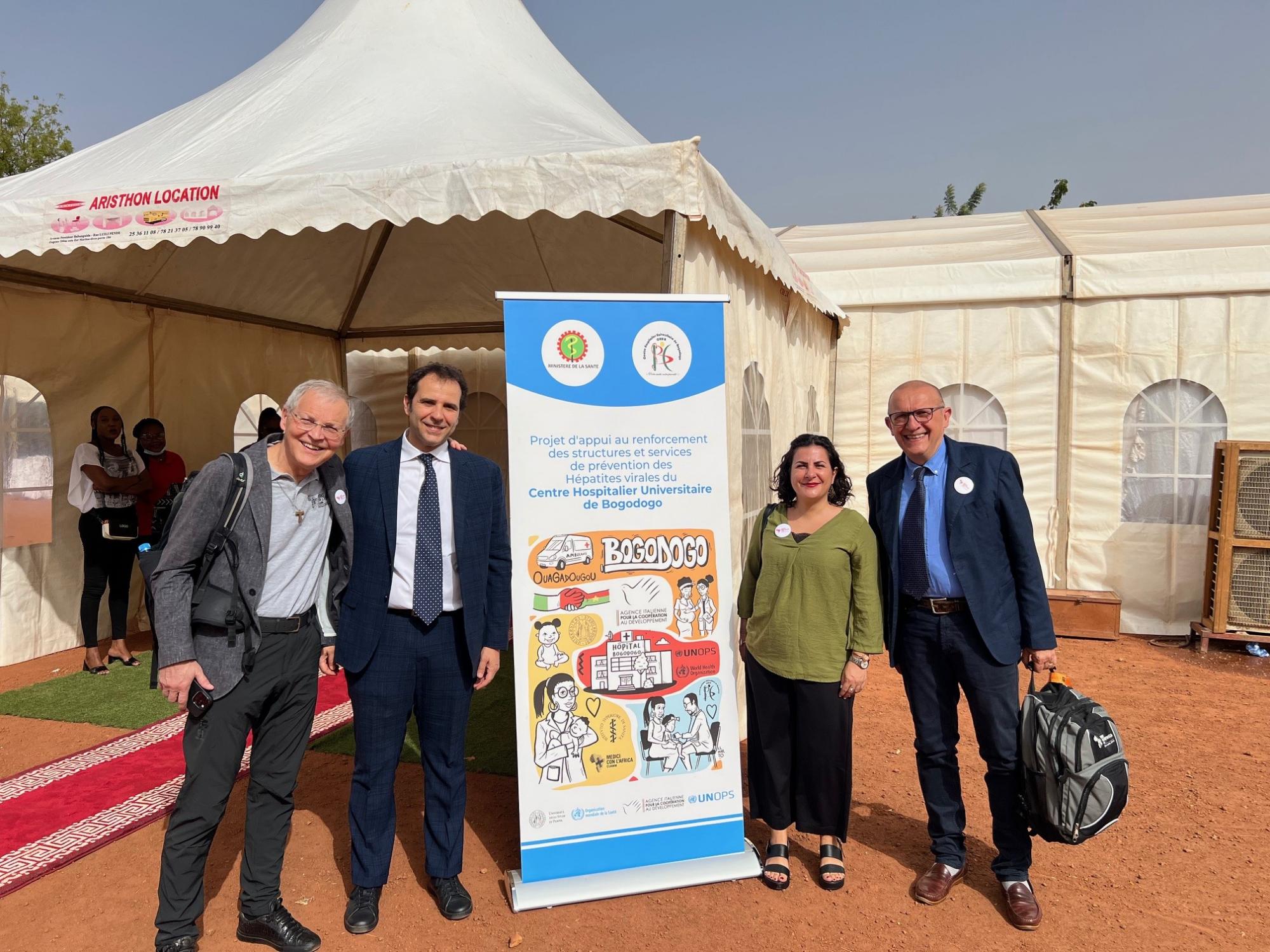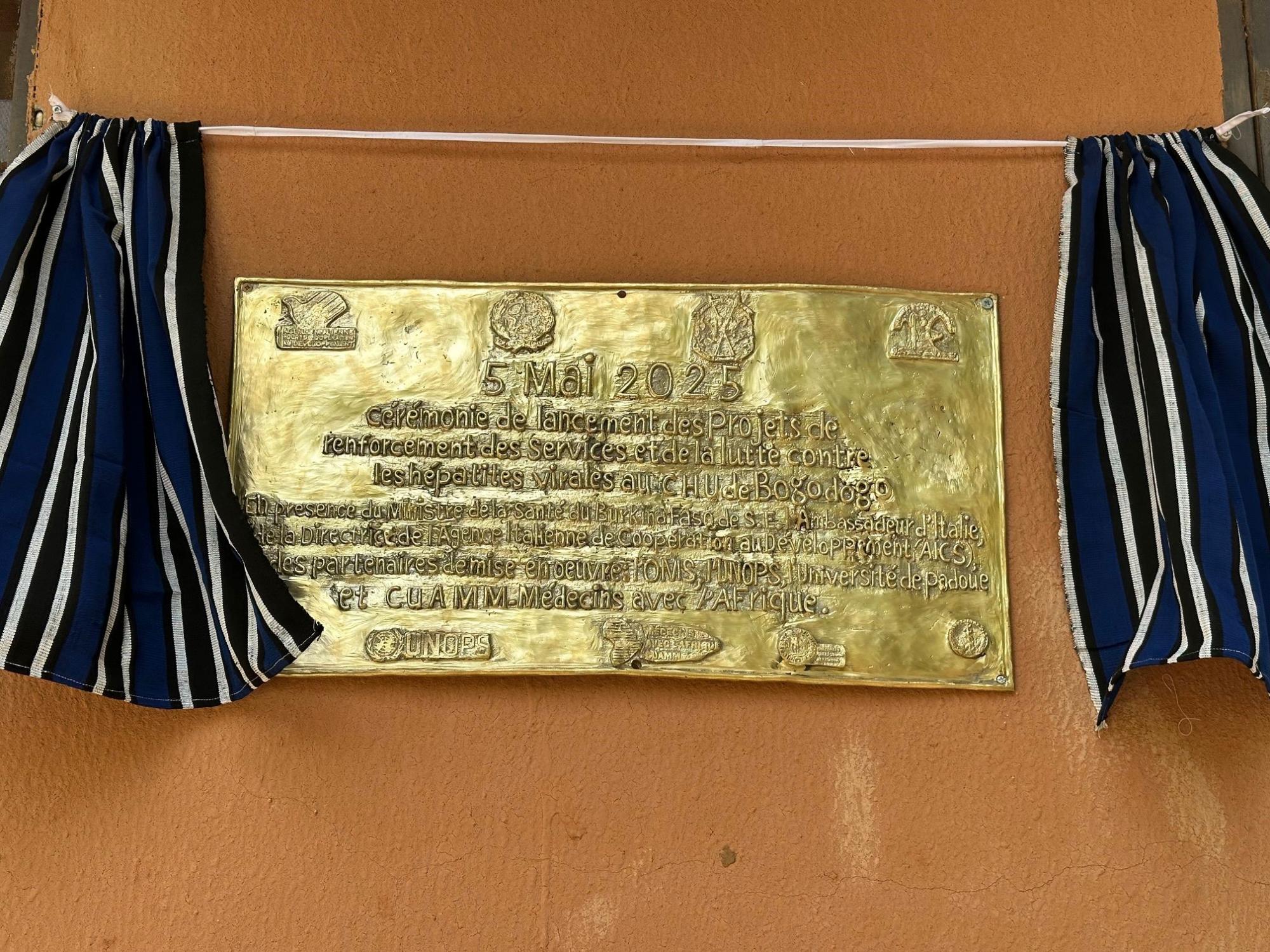
The University of Padua in Burkina Faso to Combat Hepatitis
06.05.2025
The University of Padua is launching an ambitious three-year project (2025–2028) in Burkina Faso, aimed at preventing and treating hepatitis B and C. The initiative fully aligns with the goals of universal health coverage promoted by the World Health Organization (WHO).
In Burkina Faso, viral hepatitis is one of the leading causes of morbidity and mortality, with hepatitis B (HBV) prevalence estimated at around 10% in the general population. The risk is significantly higher among vulnerable groups: pregnant women are particularly exposed, with serious consequences for both maternal and neonatal health due to the high risk of vertical transmission of the virus. Without timely diagnosis and treatment, viral hepatitis can progress to liver cirrhosis or hepatocellular carcinoma, posing a deadly threat especially in resource-limited settings.
With funding of €3 million from the Italian Ministry of Foreign Affairs and International Cooperation (MAECI), through the Italian Agency for Development Cooperation (AICS), the project will be implemented in partnership with Doctors with Africa CUAMM and the Istituto Superiore di Sanità (ISS), in close collaboration with the local Ministry of Health and the WHO.
The intervention will focus on the Bogodogo University Hospital Center in Ouagadougou and aims to diagnose and treat approximately 3,000 pregnant women and children affected by viral hepatitis B and C. The project also includes specialized training for local healthcare personnel, strengthening skills for a sustainable health response.
 From the left: don Dante Carraro, Francesco Paolo Russo, Claudia Mocci, Giovanni Putoto
From the left: don Dante Carraro, Francesco Paolo Russo, Claudia Mocci, Giovanni Putoto
Planned activities adopt an integrated approach and include:
Training of local healthcare staff, both in-person and remotely
Development of scientific research activities
Clinical management of complex cases
Provision of diagnostic equipment, tests, medicines, and digital systems for medical record management
Contribution to revising the clinical protocol for managing hepatitis B and C patients
Introduction of software for chronic patient management
This is a multidisciplinary initiative led by the Department of Surgical, Oncological, and Gastroenterological Sciences (DiSCOG) at the University of Padua, under the direction of Umberto Cillo, with the specialist support of gastroenterologists and hepatologists Patrizia Burra and Francesco Paolo Russo.
“This project represents a significant international healthcare cooperation effort aimed at strengthening the Burkinabè health system in the fight against viral hepatitis, which remains a public health priority in West Africa,” explained Francesco Paolo Russo, professor at the Department of Surgical, Oncological, and Gastroenterological Sciences at the University of Padua. “It is an initiative that fits into the University of Padua’s longstanding tradition in global health cooperation and training, reaffirming the University’s commitment to improving global health conditions.”
“For us, this is somewhat of a return,” said Giovanni Putoto, Head of Planning and Operational Research at CUAMM. “CUAMM worked in Burkina Faso for about ten years between the 1980s and 1990s. Today, as the country faces a period of severe internal instability, we return with a specific intervention. The hepatitis project, which we embraced in collaboration with the University of Padua and the Istituto Superiore di Sanità, once again brings us close to the most vulnerable—especially mothers and children, who have always been at the heart of our mission.”
The project was officially launched yesterday, Monday, May 5, at the Bogodogo University Hospital Center in Ouagadougou, with the participation of the project’s scientific lead, Francesco Paolo Russo, representing the University of Padua and DiSCOG. Also in attendance were representatives from all project partners, the hospital’s management and staff, the Italian ambassador, the Minister of Health of Burkina Faso, as well as local authorities and health experts.




